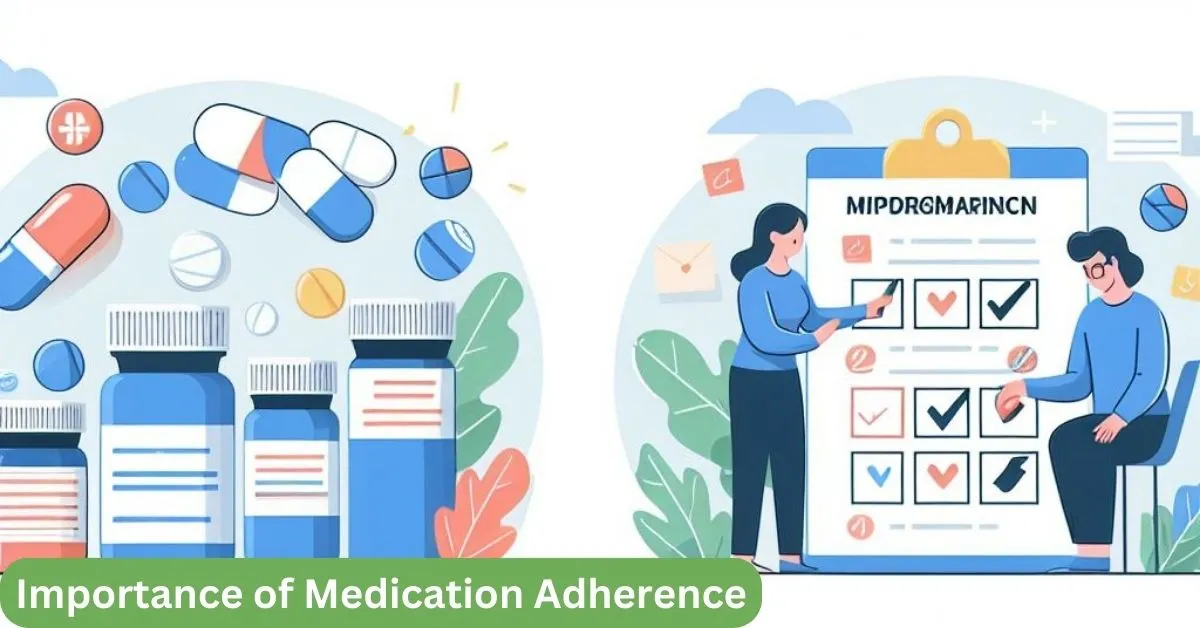The effectiveness of any medical treatment is inherently tied to a patient’s adherence to prescribed medications. Medication adherence refers to the extent to which patients follow the instructions provided by healthcare professionals regarding timing, dosage, and frequency of prescribed medications. Beyond merely swallowing a pill, adherence represents a critical link between medical recommendations and positive health outcomes.
Table of Contents
The Economic and Societal Impact of Non-Adherence
Non-adherence to medication regimens has far-reaching consequences, both economically and societally. The economic burden of non-adherence is substantial, leading to increased healthcare costs due to preventable hospitalizations, complications, and prolonged illnesses. Societally, the impact extends to reduced workforce productivity and an overall strain on public health resources.
Overview of the Multifaceted Importance of Adherence
The importance of medication adherence extends beyond the immediate goal of treating a specific ailment. It influences individual health, healthcare system efficiency, and prevention of adverse events, and even has implications for public health. Recognizing the multifaceted importance of adherence is crucial for comprehensive healthcare management.
Patient-Centric Outcomes
How Adherence Directly Impacts Individual Health
Individual health outcomes are profoundly influenced by medication adherence. Consistent adherence to prescribed medications increases the likelihood of successful treatment, symptom control, and overall disease management. Patients who adhere to their prescribed regimens experience better health and a higher quality of life.
Case Studies Showcasing Positive Outcomes with Good Adherence
Numerous case studies highlight the positive correlation between medication adherence and improved health outcomes. These cases underscore the importance of patients actively participating in their treatment plans, resulting in better disease control and long-term well-being.
The Psychological Aspect of Adherence and Its Impact on Patient Well-Being
Adherence is not solely about the physical act of taking medication; it also has a psychological dimension. Patients who adhere to their treatment plans often experience a sense of control over their health, contributing to reduced stress and anxiety. This psychological well-being further enhances overall health outcomes.
Healthcare System Implications
Economic Burden of Non-Adherence on Healthcare Systems
The economic burden of non-adherence manifests in increased healthcare expenditures. Preventable hospitalizations, emergency room visits, and complications stemming from non-adherence contribute significantly to the financial strain on healthcare systems.
Importance of Adherence in Chronic Disease Management
Nowhere is the importance of adherence more evident than in chronic disease management. Conditions like diabetes, hypertension, and cardiovascular diseases require ongoing medication adherence for effective management and to prevent disease progression.
Policy Implications for Improving Overall Adherence Rates
Recognizing the impact of adherence on healthcare systems, policymakers are increasingly focusing on interventions to improve overall adherence rates. This includes implementing measures such as patient education initiatives, leveraging technology for medication reminders, and fostering collaboration between healthcare providers.
Prevention of Adverse Events
Reducing the Risk of Complications Through Adherence
Adverse events and complications often arise when patients deviate from prescribed medication regimens. Adherence plays a crucial role in reducing the risk of these complications, ensuring that treatments are administered as intended, and the desired therapeutic effects are achieved.
Preventing the Development of Drug Resistance
In cases of infectious diseases and antimicrobial treatments, adherence becomes a key factor in preventing the development of drug resistance. Incomplete or inconsistent adherence can contribute to the evolution of resistant strains, compromising the effectiveness of medications.
The Role of Adherence in Reducing Hospital Readmissions
Hospital readmissions are not only emotionally taxing for patients but also economically burdensome for healthcare systems. Adherence to post-discharge medication regimens is instrumental in preventing relapses and reducing the likelihood of hospital readmissions.
Public Health Perspectives
Population-Level Impact of Improved Adherence
Improving medication adherence at a population level can lead to significant public health benefits. Enhanced adherence contributes to better disease control, lower transmission rates of infectious diseases, and an overall healthier population.
Strategies for Promoting Adherence at a Societal Level
Promoting adherence at a societal level involves comprehensive strategies. These may include public health campaigns, educational initiatives, and leveraging community resources to create an environment conducive to medication adherence.
The Intersection of Public Health and Individual Adherence
The intersection of public health and individual adherence emphasizes the interconnected nature of healthcare. Individual adherence practices collectively contribute to broader public health outcomes, underscoring the importance of addressing adherence as a public health priority.
In conclusion, the importance of medication adherence extends far beyond the act of taking a pill. It is intricately woven into individual health, healthcare system efficiency, prevention of adverse events, and the overall well-being of communities. Recognizing and addressing the multifaceted importance of adherence is paramount for achieving comprehensive and effective healthcare outcomes.

I am a Registered Pharmacist under the Pharmacy Act, 1948, and the founder of PharmacyFreak.com. I hold a Bachelor of Pharmacy degree from Rungta College of Pharmaceutical Science and Research. With a strong academic foundation and practical knowledge, I am committed to providing accurate, easy-to-understand content to support pharmacy students and professionals. My aim is to make complex pharmaceutical concepts accessible and useful for real-world application.
Mail- Sachin@pharmacyfreak.com
